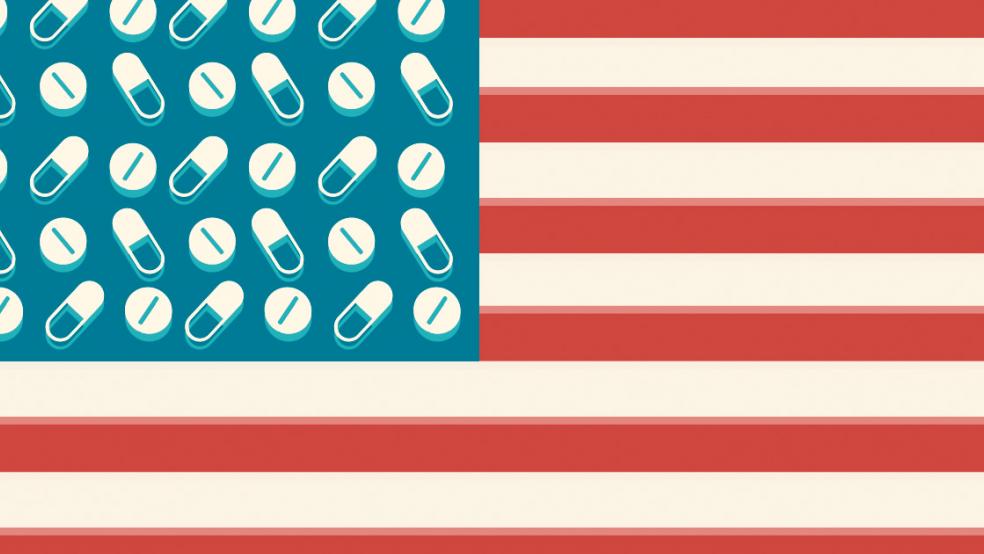This story was co-published with the Boston Globe, the Miami Herald and Health News Florida.
In 2012, Medicare's massive prescription drug program didn't spend a penny on popular tranquilizers such as Valium, Xanax and Ativan.
The following year, it doled out more than $377 million for the drugs.
While it might appear that an epidemic of anxiety swept the nation's Medicare enrollees, the spike actually reflects a failed policy initiative by Congress.
More than a decade ago, when lawmakers created Medicare's drug program, called Part D, they decided not to pay for anti-anxiety medications. Some of these drugs, known as benzodiazepines, had been linked to abuse and an increased risk of falls and fractures among the elderly, who make up most of the Medicare population.
Related: Major Changes Coming to Medicare for Senior Health Care
But doctors didn't stop prescribing the drugs to Medicare enrollees. Patients just found other ways to pay for them. When Congress later reversed the payment policy under pressure from patient groups and medical societies, it swiftly became clear that a huge swath of Medicare's patients were already using the drugs despite the lack of coverage.
In 2013, the year Medicare started covering benzodiazepines, it paid for nearly 40 million prescriptions, a ProPublica analysis of recently released federal data shows. Generic versions of the drugs 2014 alprazolam (which goes by the trade name of Xanax), lorazepam (Ativan) and clonazepam (Klonopin) 2014 were among the top 32 most-prescribed medications in Medicare Part D that year.
And it appears these were not new prescriptions.
IMS Health, a healthcare analytics company that tracks drug sales nationwide, logged only a tiny increase in all benzodiazepine prescriptions, including those covered by Medicare, from 2012 to 2013. That probably means Medicare paid mostly for refills of existing prescriptions, said Michael Kleinrock, director of research for the IMS Institute.
That millions of seniors are taking Xanax, Ativan and other tranquilizers represents a very real safety concern, said Dr. Brent Forester, a geriatric psychiatrist at Harvard-affiliated McLean Hospital in Belmont, Mass.
Related: 'Zombies on Drugs' Cost Taxpayers Nearly $300 Million a Year
The drugs are popular because they are fast-acting 2014 working quickly, for example, to quell debilitating panic attacks. But they can be habit-forming and disorienting and their effects last longer in older patients. For that reason, the American Geriatrics Society discourages their use in seniors for agitation, insomnia or delirium. The group says they may be appropriate to treat seizure disorders, severe anxiety, withdrawal and in end-of-life care.
The Doctors and Drugs in Medicare Part D
ProPublica Prescriber Checkup tool has been updated with 2013 data from Medicare, including controlled substance prescribing for each provider. Explore the app

Forester said he and others who specialize in geriatric psychiatry don't use benzodiazepines as a "first-, second- or third-line treatment because we see more of the downside than the good side."
Some geriatric psychiatrists worry that doctors may have turned to the drugs in place of antipsychotic medications to sedate patients with conditions such as dementia. In the past several years, Medicare has pushed to reduce the use of antipsychotics, particularly in nursing homes, because of strong warnings about their risks.
In 2013, Medicare covered more prescriptions for benzodiazepines than for antipsychotics.
"At the end of the day," Forester said, "in terms of risk, the risk with benzodiazepines seems so much worse to me 2026 There's significant danger and there's no spotlight."
Related: How the New Medicare Proposal Could Affect You
A spokeswoman at the Centers for Medicare and Medicaid Services declined to answer questions about Medicare's suddenly soaring tab for benzodiazepines.
Some doctors who ranked among Medicare's top prescribers of the drugs said any risks were outweighed by their benefits.
Fall River, Mass., psychiatrist Claude Curran wrote more than 11,700 prescriptions for benzodiazepines (including refills) in 2013, ranking him behind only four other doctors, all from Puerto Rico. He said the drugs worked well for his patients, many of whom are trying to kick addictions to narcotics but struggle with anxiety and depression.
"First of all, they're reliable," he said. "Second of all, they're cheap because they're all generic 2026 They tickle the brain in the same way alcohol does."
Related: Medicare's Budget Busting $4.5 Billion for Hep-C Drugs
Without benzodiazepines, he added, patients in recovery often need higher doses of methadone, which carries significant risks of its own. "Anyone who's ever had a panic attack is sympathetic to the use of the benzos," Curran said. "Anyone who has never had a panic attack doesn't understand it."
Notes: Counts include initial prescriptions and refills dispensed. Retail price includes patients' out-of-pocket costs but does not reflect drug maker rebates. Average prescriptions per patient, per provider has been adjusted to give more weight to doctors who treat more patients. (The unadjusted average is 5.7).
Top Reads from The Fiscal Times:




